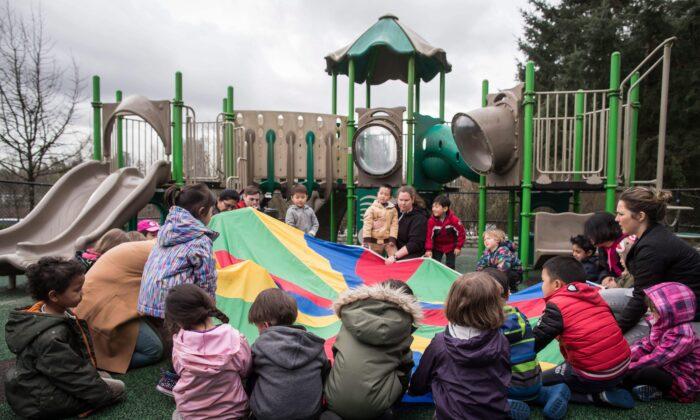Canada’s national daycare may cost billions of dollars more than estimated by the federal government, causing fewer Canadians families to benefit from it or accept a widely accessible but low-quality care unless provinces fork out more money to handle the shortfalls, according to a report.
Released by think tank Cardus on Thursday, the report estimates that Canada’s universal child care program will cost between $17 billion and $36.3 billion by 2025, depending on how the program is implemented.





